Film reviews
Back to...Hypocrisy as currency – Comatogen
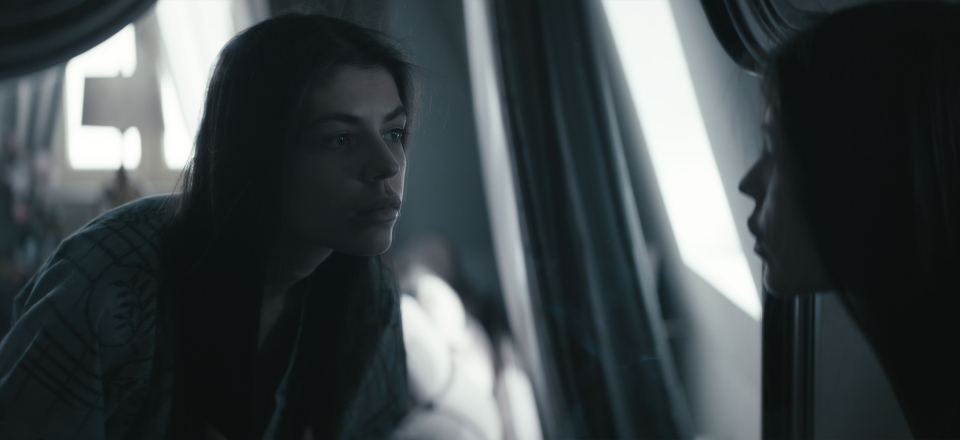
“You have to tell people what they want to hear”. That is the mantra of Comatogen, the latest film by Romanian-Moldavian director Igor Cobileanski. Co-written by Alin Boeru, the script uncovers a web of lies and deceits in the center of which stand four characters: Alina (Daniela Nane), Radu (Theodor Șoptelea), Pavel (Andrei Aradits) and Mihaela (Ada Lupu). While each one of them follows their own interests, they all need each other in order to fulfill their desires. And what truly connects them is money. It’s always about money.
Alina is a divorced woman working as a nurse and taking care of the comatose Mr. Klauss, a well-known artist whose paintings are worth millions of euros. His daughter Mihaela is set to inherit his works after his death, but she finds herself in a limbo given the current situation. Alina appears to have financial stability as well, since she is possessing a collection of expensive jewelry and living in a moderately big house with her son Radu, where they do not miss anything but the love of a husband/father. Her spontaneous relationship with ex-classmate and high school sweetheart Pavel has the potential to feel that void, and he acts like a paternal figure when he is inviting Radu to work for his real estate agency. But this good deed will not go unpunished, as the saying goes.
Comatogen does not stray too much from the Romanian New Wave in terms of genre, contemporary subjects, genuine acting and handheld camera filming style. What truly sets the film apart from its counterparts is the editing and structure, which shows four different and often opposing character perspectives coming together like the pieces of a puzzle. When the audience watches the first story unfold from Alina’s point of view, a certain chain of events, motives and explanations starts to take shape, only for it to be completely shattered by the following ones. The director bets on a natural storytelling mechanism: the mind of the viewer inevitably tries to fill in the gaps in the plot. Sometimes the intuition is on point, other times the public can be totally taken aback by the unexpected twists and turns that come with the reveals of other perspectives.
Empathy is another key ingredient that the film uses against its own audience. Some characters may appear innocent from one point of view, and the public instantly feels sorry for them. Shortly after, though, they are presented in a darker light, which makes one despise them even more because they managed to fool people in the beginning. Dialogue lines such as “He was a good man” or “I tend to forgive too much” also play an effective role in the mind-boggling realization that hypocrisy is the most valuable currency because it can help one get the most money.
The lack of music until the credits roll is an intentional way of letting the silence speak, unmasking the protagonists, their appalling actions and how they position themselves in relation to them, constructing a justified personal reality in order to tame their cognitive dissonance. The final scene, when Alina and Mihaela cry separately, humanizes the two women, showing that moral compasses and compassion do exist, but unfortunately some things have to be done. The four characters are certainly not equal in evilness, and Comatogen does a very great job in exploring the morally grey area ever-present in life, in which the truth is not so important. Because “what do people want to hear?” – “A story.”
by Oana Balaci
Back to...-
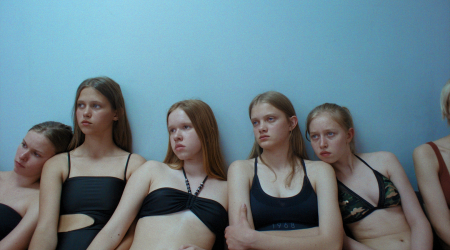
Tapeworm pills, illegal tongue piercings and a sketchy modeling school. Toxic portrays girlhood in an unflinching way.
-
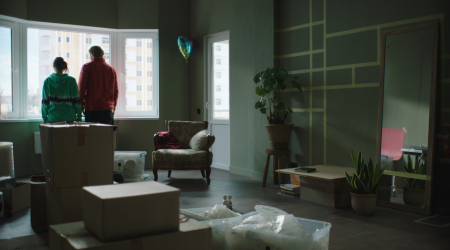
Медовий місяць (“Honeymoon”) / “You support the human right to be alive”
-
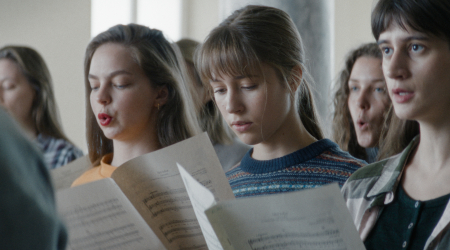
Review of LITTLE TROUBLE GIRLS
-
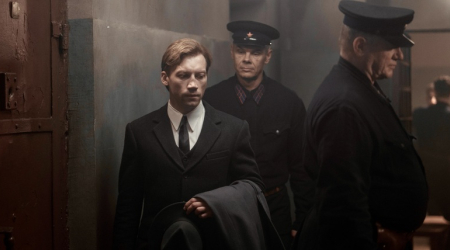
Two Prosecutors – Loznitsa's new film places Stalinist horrors between Kafka-like irony and Greek tragedy











